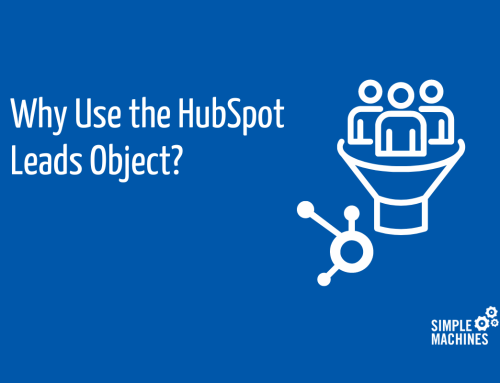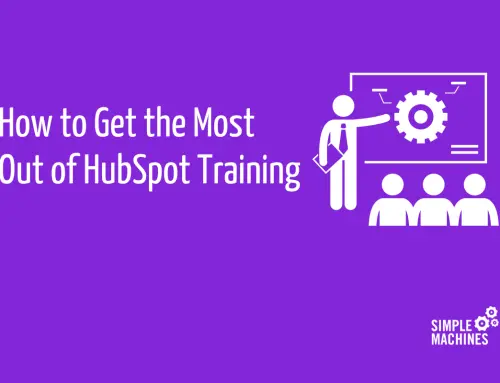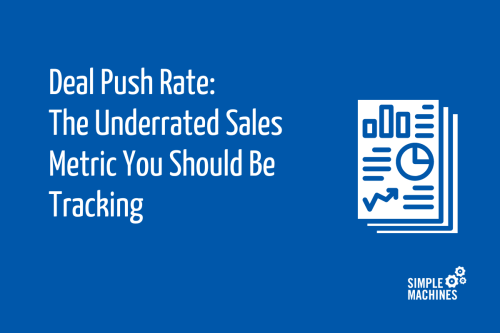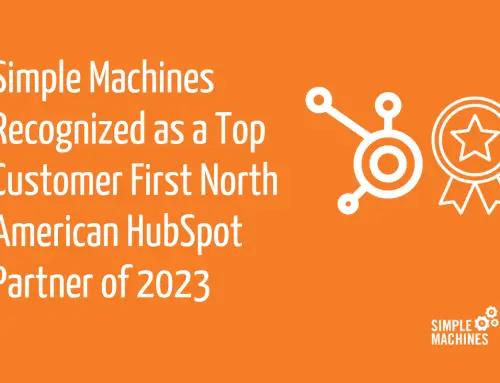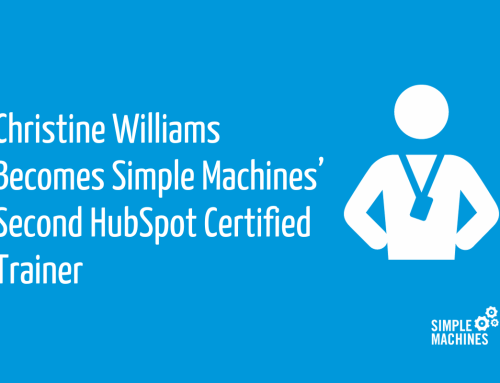As we’ve helped more clients implement HubSpot’s Operations Hub, a couple of things have become apparent.
First, Ops Hub is really useful – especially as HubSpot has invested in more data quality and automation features in the last few years.
Second, explaining the usefulness of Ops Hub to business leaders who aren’t huge HubSpot and data nerds like us isn’t always easy.
While marketing, sales and service are clearly identifiable needs and use cases those Hubs address, the idea of operations tends to feel less tangible, not so immediate. At the same time, businesses looking to scale will eventually hit a point when the level of complexity in their tech stack and data makes the need for this type of solution very acute.
In this post, we’ll look at the common signals to understand if you’re at or approaching that point. Here are five signs your business needs HubSpot’s Operations Hub.
(Note: this post is not a rundown of Ops Hub features – if you’re looking for that, head here.)
Sign 1: Data Silos Are Hindering Your Growth
Here’s an example many businesses won’t find hard to imagine. The marketing team is using HubSpot Marketing Hub. Sales is using Salesforce, Clearbit and Chili Piper. Service is using Zendesk and Asana. Some of the data is syncing, but maybe not all of it, some of the integrations seem a little wonky, and no one is reviewing the holistic picture because, well, they can’t.
“Data silos” is an overused and jargony phrase, but it is a real problem. This lack of integration leads to fragmented data pools that hinder collaborative efforts, decision-making and – ultimately – growth.
Operations Hub acts as a central nervous system for the business, integrating these disparate systems and centralizing data, ensuring that every team has access to the same, up-to-date information. This unified approach not only helps facilitate collaboration between teams but also paves the way for more strategic, data-informed decisions from the top down.
Sign 2: Your Team Is Bogged Down by Manual Tasks
When your team’s time is consumed by repetitive, manual tasks, it’s not just productivity that takes a hit – employee morale does, too. (If you’ve ever had the pleasure of de-duplicating hundreds or thousands of contacts one by one, I don’t need to say any more about this…)
Not only are these types of tasks not the best use of your team’s talent, but they’re also prone to human error.
Operations Hub addresses this challenge with powerful programmable automation tools that can take over these tedious tasks. From automated data formatting, bulk de-duplication and data management features, a well-implemented Ops Hub frees up your team to focus on more value-generating work (and helps preserve their sanity).
Sign 3: You Can’t Rely on Your Data
It’s a given that accurate data is table stakes for effective decision-making. And yet, we often talk to business leaders who suspect their data isn’t reliable. This is especially common when they have information spread across multiple platforms.
One of Operations Hub’s primary selling points is that it delivers real-time data syncing across your tools, maintaining a single source of truth for your data. Its advanced reporting features like datasets are designed to provide clear insights into your business, enabling you to make informed decisions quickly and confidently.
Sign 4: You Struggle to Provide a Seamless Customer Experience
We all know that today’s buyers expect and demand a frictionless experience when dealing with any business (okay, cable companies excluded).
Here’s the thing: you can shout this at your teams from the rooftop every day, but if operational inefficiencies are creating bottlenecks, there WILL be friction.
By enabling you to do things like enrich HubSpot records with third-party data, automating renewal management and creating nuanced lead and ticket rotations based on factors such as need or location, you can better ensure your business is removing operational friction and providing the level of service your customers expect.
Sign 5: Scaling Your Business Is a Technical Nightmare
Scaling a business should be an exciting phase, but for many, the technical complexities of scaling operations can be ulcer-inducing. Not only is everyone expected to keep pace with existing resources, the amount of data and tools in the tech stack seems to grow exponentially. What started as a simple way of doing business can quickly become chaotic and convoluted.
Operations Hub is built for scalability, designed to grow with your business. It simplifies the integration of new tools and processes, making it easier to expand your operations without adding unnecessary complexity. This means you can focus on growth without getting wrapped around the axle by technical complications.
How to Get Started with Operations Hub
Recognizing the signs your business needs Operations Hub is the first step. The next is to assess your current operational framework and identify specific areas where you can benefit from integration, automation and improved data management.
Here’s how you can get started:
- Assess Your Current Operations: Take a close look at your existing processes, data management practices, and customer experience strategies. Identify pain points and areas where inefficiencies are most pronounced.
- Identify Key Integration and Automation Opportunities: Determine which repetitive tasks can be automated and which systems and platforms could benefit from integration. This will help you pinpoint where Operations Hub can have the most immediate impact.
- Consult with Experts: Implementing a solution like Operations Hub can be complex, especially if you’re looking to maximize its potential. Engaging with HubSpot technical consulting and training specialists will provide you with the expertise needed for an easy and optimal setup.
Final Thoughts
The path to operational efficiency is ongoing, but it can be significantly simplified with the right tools. If your business is showing any of the signs mentioned above, consider getting a demo of Operations Hub to see how it might help.
Ready to explore how Operations Hub can work for your business? Contact us today for a consultation.


